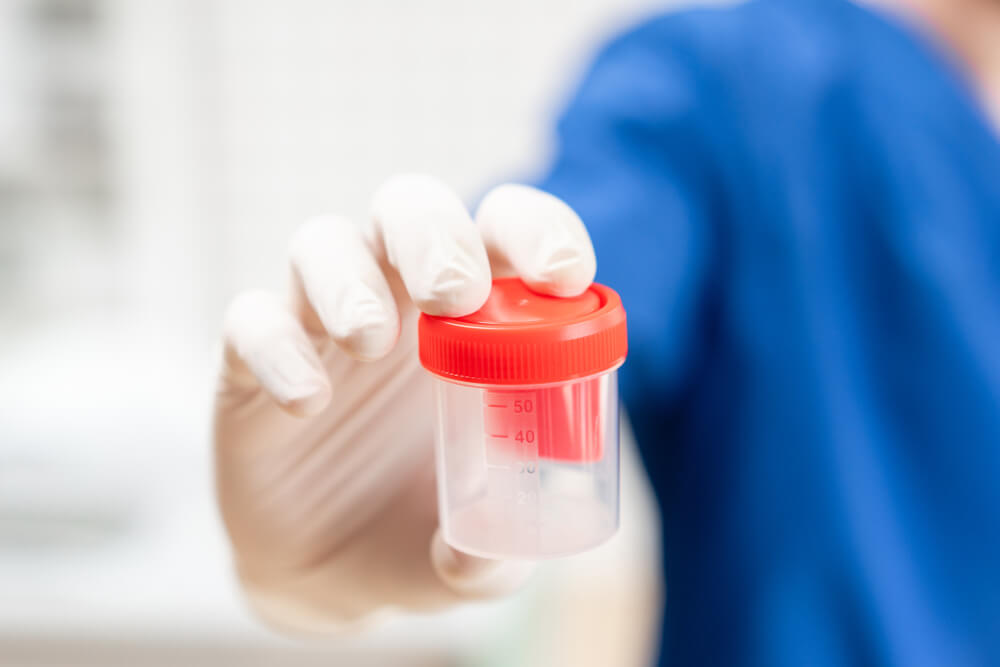Making the decision to expand your family is definitely an exciting one, but what should you do if things aren’t going smoothly? Many people get confused because they have no clue whether they are infertile or when they should start looking for treatments. The best time for infertility treatment is a fairly complex subject. It depends a lot on your age, health, and other factors.
When Should You Start Looking at Infertility Treatment Options?
After spending years carefully avoiding pregnancy, many people assume that they will get pregnant the second they start trying. However, the reality is that it takes most healthy couples at least six months of trying to conceive.[1] Therefore, you probably don’t need to panic and start researching infertility specialists the first time your conception attempts don’t work.
Instead, the general rule of thumb is to try on your own for a year. This gives you and any partners plenty of time to see if nature will take its course. If you have not conceived following a year of trying independently, it is time to start researching infertility treatment options. You should seek counseling with a specialist who can diagnose potential issues and recommend infertility treatments.

Age Makes a Big Difference
Something to keep in mind is that fertility varies a lot by age for both men and women. Many people assume only a female’s age matters for fertility, but research has found that male factor infertility is far more common in men over the age of 35.[2] Therefore, the general guide of waiting a year before seeking treatment only applies to men and women under the age of 35.
If you or your partner is between the ages of 35 and 40, it is a good idea to seek help after you have been trying for six months without being able to conceive. The timeline is even shorter if you are over the age of 40. People over the age of 40 should start looking into fertility treatments if they have tried for three months without conceiving.[3]
The reason for this timeline is that fertility starts to decline sharply after the age of 35. If you are struggling to get pregnant, experts do not recommend you waste time trying on your own. Instead, it is a good idea to go ahead and talk to a doctor as soon as possible. This can help you speed up the diagnosis and treatment stages so you get care sooner.
Should You Seek Infertility Treatments Before Trying to Conceive?
In some cases, it can be useful to go ahead and begin fertility counseling before you even plan on conceiving. A common example of why people should do this is age. If you are getting older but still want to wait a while before conceiving, it can be helpful to talk to a fertility specialist. They can recommend options that will keep you from having a hard time conceiving later on.
You should also go ahead and start looking at fertility treatments if you have ovarian cancer, severe endometriosis, or other similar reproductive conditions. When your doctor is recommending radiotherapy, hysterectomies, and similar treatments, these cures may potentially make it harder to get pregnant later. Any time your medical care has the potential to impact later fertility, it can be a good idea to go ahead and start looking at fertility options.
There are all sorts of potential treatments that can help preserve fertility. You often have the option of freezing eggs, freezing sperm, or even freezing whole embryos. This gives you more time to wait before having a child. When you’re ready, your doctor can implant your reproductive material in you or a surrogate.
Reasons to Look at Fertility Treatment Options as Soon as Possible
Whether you are currently trying to conceive or not, trying naturally for several months is only recommended if you and your partner are in good health. If you have any health conditions, you may want to go ahead and speak to an expert right away. This can help address your unique needs, saving you a lot of time and frustration.
There are several conditions that may cause female and male infertility.[1] These conditions do not necessarily keep you from getting pregnant, but they do make it harder. You may need to get the medical condition under control before you proceed with trying to conceive. Therefore, seeking treatment right away increases your chances of a successful conception.
You should seek infertility treatment as soon as possible if your doctor has diagnosed you with one of these conditions:
- Polycystic ovarian syndrome
- Premature ovarian insufficiency
- Pelvic inflammatory disease
- Endometriosis
- Varicocele
- Klinefelter’s syndrome
It is also a good idea to seek care if you suspect that something may impair your fertility. For example, if you had childbirth complications before, you are at risk for infertility after the first child. Women who have irregular period bleeding, intense period pain, irregular menstrual cycles, pelvic pain, or pain during intercourse may need treatment.
Explore Your Infertility Treatment Options

Once you decide to seek care, the first thing your fertility specialists will recommend is typically testing. This helps determine whether male or female infertility is the issue. Once they have an idea of what may be causing the trouble conceiving, your doctor may recommend several different treatment options. Often, you may use multiple fertility treatments at once to provide the best possible results.
For female infertility, there are multiple medications that can help balance hormones and stimulate egg production. There are also both female and male infertility treatment choices that involve surgery. This can clear blockages that may be causing a problem. To further enhance fertility, your doctor may suggest intrauterine insemination. This treatment involves placing sperm directly into the uterus during ovulation, making it easier for sperm to encounter an egg.
For many types of infertility, in vitro fertilization is a widely effective choice. The doctor combines healthy sperm and eggs outside of the uterus and then transfers them to the gestational carrier. This works with any combination of donor sperm, donor eggs, and surrogates, so it can overcome many fertility issues.
When it comes to picking the best time for infertility treatment, remember that early is always better than late. Even if treatment is not absolutely necessary for you yet, there is no harm in going ahead and talking to a specialist. At Women’s Care of Bradenton, we are happy to provide our clients with sensitive and expert care. Are you interested in learning more about fertility treatments? Give us a call now and schedule an appointment with one of our expert specialists.
References:
[1] https://www.healthline.com/health/pregnancy/how-long-does-it-take-to-get-pregnant
[2] https://www.ncbi.nlm.nih.gov/pmc/articles/PMC3253726/
[3] https://www.arcfertility.com/patient-resources/infertility-tutorial/right-time-treatment


